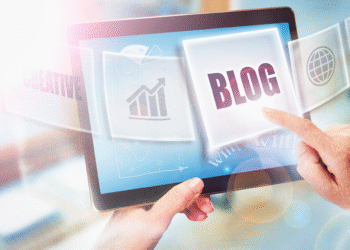Why Personal Finance Looks So Different in 2025
In recent years, the landscape of money management has transformed significantly, outpacing the changes of the past two decades. Factors like inflation, increasing living expenses, and the rise of fintech applications have prompted many individuals to reevaluate their budgeting, saving strategies, and methods for generating additional income. As we look toward 2025, one clear trend emerges: a shift from traditional spreadsheets to AI budgeting tools that adapt to our behaviors and offer real-time recommendations.
Rather than waiting until the end of the month to scrutinize a bank statement and ponder “Where did my money go?”, a growing number of users are now receiving timely alerts throughout the month, such as “This week you spent 25% more on food delivery than usual” or “If you move 80 dollars today, you will hit your savings goal before the end of the month.” This kind of forward-thinking guidance is gradually becoming the norm.
From Cash Envelopes to Digital ‘Smart Envelopes’
While cash envelope systems were once a favored method for curtailing overspending, in 2025, this concept has evolved into a digital format. Numerous applications now enable users to create virtual pockets for various expenses like rent, groceries, leisure, travel, and debt repayment. The key distinction is that these pockets are now flexible: they can automatically adjust according to changes in income or unexpected expenses.
Some platforms even integrate these envelopes with AI-driven insights. For instance, if the app detects that you typically travel in August or increase spending during the holiday season, it can recommend boosting your “travel” or “gifts” envelope several months ahead of time. The aim is straightforward: to minimize surprises, reduce financial stress, and provide a clearer picture of your lifestyle.
The Comeback of Saving: Automating What We Forget
For many, the challenge of saving doesn’t stem from the math involved, but rather from behavioral habits. Often, we simply forget to save. Consequently, automation has become a fundamental aspect of contemporary personal finance. Instead of manually deciding each month how much to transfer into savings, users can establish a rule and allow technology to handle it.
A widely embraced strategy involves pairing automation with a high-yield savings account. This approach ensures that every small transfer works more effectively behind the scenes, accruing higher interest than a conventional bank account. In 2025, numerous banks and fintech companies are competing in this arena, offering attractive rates, bonus interest for consistent savers, and instant access through mobile applications.
Side Hustles and the Creator Economy: New Ways to Earn
Simultaneously, personal finance isn’t solely focused on cutting expenses or enhancing savings. A vital component of modern finance is the pursuit of new income sources. The creator economy, alongside freelancing platforms and remote work opportunities, has simplified the process of exploring various side projects.
Individuals are actively seeking the best side hustle ideas that align with their skills and available time: online tutoring, content creation, affiliate marketing, consulting, selling digital products, and much more. The distinction in 2025 is that these endeavors are no longer regarded as mere “extras.” For some, they represent a substantial secondary income stream; for others, they serve as a safety net should their primary employment shift.
AI as a Personal Money Coach
Another prominent trend involves leveraging AI not just for tracking finances, but also for behavioral coaching. Certain tools can scrutinize your previous transactions and uncover patterns you might not have noticed: such as how frequently you make impulse purchases, which subscriptions you overlook, or which spending categories diverge from your financial goals.
In practical terms, this translates to receiving concise, actionable recommendations rather than generic advice. Instead of a vague suggestion like “Spend less on eating out,” you might receive a tailored insight: “If you reduce food delivery by just one order each week, you can fully fund your weekend trip in three months.” This personalized approach empowers individuals to feel more in control of their finances and motivates them to adhere to their plans.
How to Stay Ahead of These Changes
The realm of personal finance will continue to evolve, yet several fundamental principles remain constant. First, clarity: maintain an understanding of your income, expenses, and the reasons behind them. Second, flexibility: be prepared to adjust your budget and goals as life circumstances change. Third, curiosity: experiment with new tools, savings techniques, and income opportunities.
In 2025, success will not belong to those who avoid financial mistakes, but rather to those who adapt swiftly, automate beneficial habits, and embrace technology as a supportive partner. Whether you’re refining your budget, exploring a better savings account, or initiating a small side project, the new generation of digital tools is designed to enhance your decision-making—not replace it.




